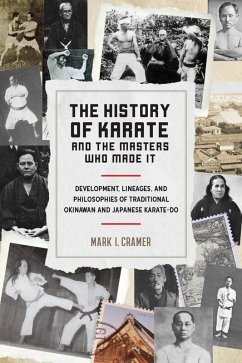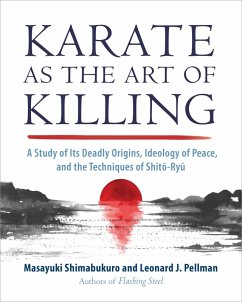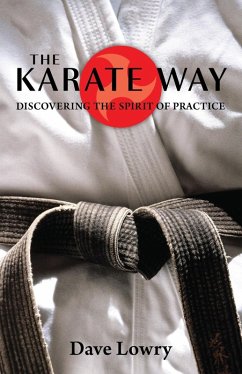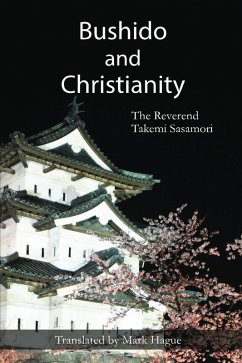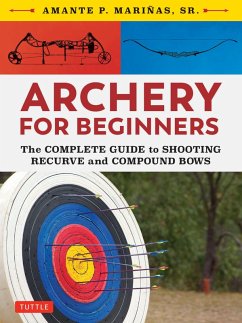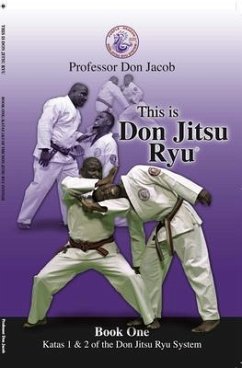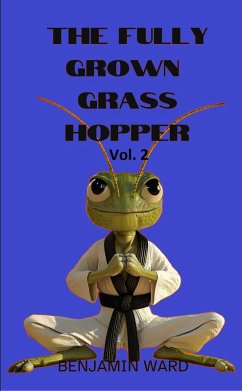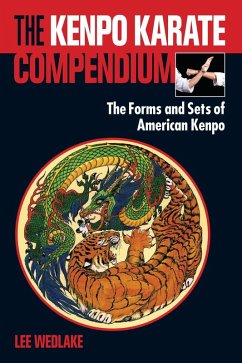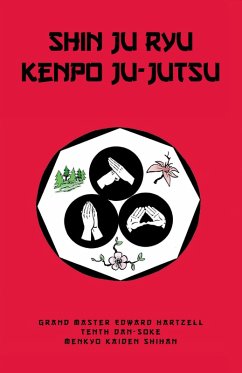
Analysis of Shu Ha Ri in Karate-Do (eBook, ePUB)
When a Martial Art Becomes a Fine Art

PAYBACK Punkte
5 °P sammeln!
The transfer of a centuries-old Japanese fine arts principle into empty-hand fighting.
In this book in the Analysis of Karate series, Hermann Bayer, Ph.D. examines Shu Ha Ri and its influence on modern karate. Bayer examines why and how this centuries old Japanese fine arts concept has changed how karate is practiced in modern times.
Shu Ha Ri is a genuine Japanese fine arts principle that was later applied into Japanese martial arts in general, and into karate-do in particularnot as a factual martial arts tradition but as an invented oneduring a process that also converted O...
The transfer of a centuries-old Japanese fine arts principle into empty-hand fighting.
In this book in the Analysis of Karate series, Hermann Bayer, Ph.D. examines Shu Ha Ri and its influence on modern karate. Bayer examines why and how this centuries old Japanese fine arts concept has changed how karate is practiced in modern times.
Shu Ha Ri is a genuine Japanese fine arts principle that was later applied into Japanese martial arts in general, and into karate-do in particularnot as a factual martial arts tradition but as an invented oneduring a process that also converted Okinawa's self-protection art into something closer to a fine art of self-perfection.
Clarifying the influence of Shu Ha Ri in the Japanese approach to martial arts is particularly important since traditional Okinawan karate circles adamantly insist on keeping their Okinawan karate approach separated, unique, and not to be mixed up with Japanese ways.
Dr. Bayer's weaves historic, socio-cultural, political, philosophical, psychological, and commercial components into a complex analysis that finally gives a clear picture of the subject, and that addresses doubts and questions about ascent or alibi which inevitably arise when an Okinawan fighting art is changed into a Japanese fine art.
Contents Include
An additional component in this analysis is the inclusion of educational principles and approaches that can help instructors organize and systematize their teaching approach and to overcome traditional instructor-centered concepts by using teaching approaches that were developed to better reach westerly socialized minds.
In this book in the Analysis of Karate series, Hermann Bayer, Ph.D. examines Shu Ha Ri and its influence on modern karate. Bayer examines why and how this centuries old Japanese fine arts concept has changed how karate is practiced in modern times.
Shu Ha Ri is a genuine Japanese fine arts principle that was later applied into Japanese martial arts in general, and into karate-do in particularnot as a factual martial arts tradition but as an invented oneduring a process that also converted Okinawa's self-protection art into something closer to a fine art of self-perfection.
Clarifying the influence of Shu Ha Ri in the Japanese approach to martial arts is particularly important since traditional Okinawan karate circles adamantly insist on keeping their Okinawan karate approach separated, unique, and not to be mixed up with Japanese ways.
Dr. Bayer's weaves historic, socio-cultural, political, philosophical, psychological, and commercial components into a complex analysis that finally gives a clear picture of the subject, and that addresses doubts and questions about ascent or alibi which inevitably arise when an Okinawan fighting art is changed into a Japanese fine art.
Contents Include
- A centuries old Japanese fine arts principle finds its way into modern karate.
- Shu Ha Ri is a Japanese cultural concept, not an Okinawan one.
- Japan converts Okinawan Karate-jutsu and inserts Japanese philosophies.
- The essence of Shu Ha Ri is its trinity of coexisting phases.
An additional component in this analysis is the inclusion of educational principles and approaches that can help instructors organize and systematize their teaching approach and to overcome traditional instructor-centered concepts by using teaching approaches that were developed to better reach westerly socialized minds.
Dieser Download kann aus rechtlichen Gründen nur mit Rechnungsadresse in A, D ausgeliefert werden.




